And God said, Let us make man in our image, after our likeness: and let them have dominion over the fish of the sea, and over the fowl of the air, and over the cattle, and over all the earth, and over every creeping thing that creepeth upon the earth. -Genesis 1:26
Today we are faced with a challenge that calls for a shift in our thinking, so that humanity stops threatening its life-support system. We are called to assist the Earth to heal her wounds and in the process heal our own—indeed to embrace the whole of creation in all its diversity, beauty and wonder. -Wangari Maathai
The first law of ecology is that everything is connected to everything else. As it happens, this is not unlike the first of God’s laws. Thou shalt love the Lord thy God with all thy heart, and with all thy mind, and with all thy soul, and with all thy mind. This is the first and great commandment. And the second is like unto it, Thou shalt love thy neighbor as thyself. (Matthew 22:37-39). Heavenly Parents envision their children connected in all directions in an ecosystem of love. I believe that our care of the Earth is one of the most important manifestations of our love for God and for each other. In this time of discord and division, restoring reciprocal relationships with our sacred home has never been more needed.
One May when I was a Ph.D. student, my mentor Sarah and I were dragging permafrost cores back to camp on the North Slope of Alaska. We started talking about religion, and she tactfully told me that it seemed incredibly self-centered and irrational to believe in a human-like creator. In her opinion, this kind of belief was evidence that humans had created God in their image, not the other way around. She worried that an anthropocentric worldview encouraged exploitative relationships with the Earth. In a global ecosystem of over eight million species, doesn’t a belief in human exceptionalism set us up for a mighty fall?
Since that conversation with Sarah, I've been asked versions of this question by both believers and nonbelievers. While I see how belief in an anthropomorphic deity could predispose us to some forms of environmental negligence, I’ve concluded that this exceptionalist theology carries fundamental truths about our relationship with the Earth, whether you believe in God or not.
When God described His creation to Moses some 3,500 years ago, the prophecy that man would dominate the Earth must have seemed laughable. Even Moses didn’t buy it initially. After his encounter, he reflected, “Now, for this cause I know that man is nothing, which thing I never had supposed” (Moses 1:11).
At that time, there were more kinds of creatures than individual humans on the planet, and Homo sapiens was not on anyone's short list to become the top dog (so to speak). A slow-reproducing primate with no particular gifts in strength or speed, we didn't have any claws or teeth to speak of, and we'd given up the safety of the trees. There were no ecological or evolutionary reasons to believe that we were more like God than any of His other creatures.
But God was right. It turns out we are exceptional. Today, our species has dominion over the air, the earth, the sea, and all that moves within them. We have plowed, paved, burned, or built 77% of the Earth’s ice-free land, and we have trawled 87% of the ocean.1 The mass of human-made objects outweighs all life on Earth, and our bodies and livestock account for nearly 95% of total vertebrate biomass.2 Our food, energy, and transportation systems now control the Earth’s great biogeochemical cycles, including the movement of water, sediment, carbon, nutrients, and energy.3
The revelation that we inherit our form from Heavenly Parents could prepare us for this leading role in the Earth system.4 Indeed, scriptures of the Restoration emphasize the importance of stewardship with insistence and specificity. The Lord repeatedly commands us to develop proper relationships with land, water, air, and other life. We are to exercise respect, humility, restraint, judgment, and gratitude toward creation, while avoiding all excess, extortion, waste, greed, and inequality. As it turns out, the divine edict to “have dominion” was never about endless exploitation; it is about applying our divine gift of agency in consistent consideration of our relationships with all living things. Humans are indeed an exceptional species, precisely because our great power comes with great responsibility.
I, the Lord, should make every man accountable, as a steward over earthly blessings, which I have made and prepared for my creatures. I, the Lord, stretched out the heavens, and built the earth, my very handiwork; and all things therein are mine. And it is my purpose to provide for my saints, for all things are mine. But it must needs be done in mine own way; and behold this is the way that I, the Lord, have decreed to provide for my saints, that the poor shall be exalted, in that the rich are made low. For the earth is full, and there is enough and to spare; yea, I prepared all things, and have given unto the children of men to be agents unto themselves. -Doctrine and Covenants 104:13
Our stewardship of the Earth provides for all of our temporal needs, but it also creates opportunities for developing Christlike virtues. As Presiding Bishop Gérald Caussé recently taught, “Beyond being simply a scientific or political necessity, the care of the earth and of our natural environment is a sacred responsibility entrusted to us by God, which should fill us with a deep sense of duty and humility. It is also an integral component of our discipleship.”
Our unique understanding of the Plan of Salvation gives even more reason to celebrate and honor our common home. The Earth’s physical form is the product of billions of years of creation processes guided personally by the Savior. Earth is a conscious being, and she is already abiding the celestial law that we are commanded to learn and live.5 She is not just a stepping stone on our journey through mortality, she is the host of our postmortal spirits and eventually our perfected souls.6 The centrality of the Earth in the Restored Gospel transforms my approach to sustainability. To poke at two prevalent metaphors, the Earth is not just a “spaceship” or a floating sphere of “resources” to be extracted; she is our sacred home and compassionate mother.7
Narratives of human depravity lose their meaning in this light. The misanthropic trope about the Earth resiliently adapting after humans have extinguished themselves neglects the reciprocal relationship that seals us to our mother planet. When the prophet Enoch heard the Earth groan in suffering—admittedly from human wickedness—he did not ask for the Lord to sweep us off her surface. He prayed for the Lord to “have compassion on the earth” by blessing the human family. This is not a competition between the economy and the environment or a case of people versus planet. To lift up the human family, we must be careful caretakers of God’s creations.
If we were asked to give a communal report of our earthly stewardship today, how would we fare? Though our failures and unsolved problems understandably loom large, there are many global successes and countless local stories of effective and compassionate stewardship. Through technical prowess and communal action, we have reversed the destruction of Earth’s ozone layer and protected some of the most critically endangered of our fellow species. We are finding ways to provide food, water, and energy for eight billion people—a thousand times more than in Moses’ day.
On the other hand, our dominion of the Earth is almost godlike in its magnitude but decidedly human in its unwieldiness. The fossil fuels and agricultural systems that have enabled our progress now produce 50 billion tons of greenhouse gasses and enough local pollution to cause an estimated 15 million premature deaths each year. That is more loss of human life than all malnutrition, communicable disease, substance use disorders, and violence combined.8 As followers of Christ, we are anxiously engaged in alleviating the human suffering associated with each of those challenges—rightfully so. Can we recognize the spiritual imperative of abiding by the Earth’s laws and limits?
In her powerful address at a Latter-day Saint Earth Stewardship event in 2019, Sharon Eubank asked a question that I think about daily. She said, if Jesus Christ is the King of Zion and as broad as eternity, and Enoch—when he was in the presence of Jesus—felt so much compassion for the earth and its inhabitants that his own heart swelled as wide as eternity, then what would it take for each of us to have our hearts swell as wide as eternity? Perhaps this question affects me so personally because it changes what has long been a subject of fear into a matter of love.
And so, as an ecologist who desires to have a heart in the image of God, I can say the first law of ecology and Zion is that everything is connected to everything else through love. Just as the loss of a species sends negative shockwaves through the fabric of life, each loving act propagates far past its view. I believe when we see ourselves as part of the Earth, and the Earth as part of us, then we more truly grow into the image of God as reflected in creation. This Earth Day, I hope we can focus on expanding our circle of love to include creatures as simple as a single cell to those as complex as you and I; each creature individually, and together in eternal connection; let us love all of God’s glorious creation.
Ben Abbott is an ecologist who works at BYU on environmental science and sustainability.
Art by Ariel Lee.
A Biodiversity of Stories
This Earth Day, Wayfare would like to honor our relationships with all living things as fellow participants in the greater Earth community. See below for a curated ecosystem of editorial favorites that have inspired us and that we hope in turn inspire you.
The River from the Temple
An eco-theological slam poem. Delight your eyes by reading or delight your ears by listening to this poet read out-out loud.
Reclaiming the Desert
This fictional piece imagines an optimistic future of new environmental technologies and traditional techniques wherein human and earth relationships reconcile into sustainable balance.
More Than a Name
How naming conventions—like for hurricanes and heatwave—transform extreme weather events into fellow participants in the human story.
The Re-Enchantment of the Earth
Cultivating a sense of enchantment as we re-imagine our present and future.
Our Opus for Unity on Earth Day by Madison Daniels
NEWS
After years of battling cancer, beloved Latter-day Saint historian, writer, and speaker Melissa Inouye is entering hospice care. You can support her family here. You can read Melissa’s beautiful Wayfare essay here.
The Forward, a major Jewish-American news organization, recently re-published the Wayfare essay of the time Latter-day Saint scholar Nate Oman drove 10 hours to purchase dozens of bottles of alcoholic drinks—along with other chametz or leavened products—from a Jewish congregation as part of their annual Passover ritual.
Just when you thought they were finished, The Joseph Smith Papers Project has released an ebook compilation of nearly 200 legal cases and records involving Joseph Smith. At times a plaintiff, witness, defendant, or judge, these cases reveal the massive extent to which Joseph’s life became entangled in various legal disputes and how he approached them.
The Center for Latter-day Saint Arts is curating an exhibition of Latter-day Saint art in Mesa, Arizona from May 10, 2024 to August 4, 2024. Titled Materializing Mormonism: Trajectories in Contemporary Latter-day Saint Art, the exhibit is curated by Heather Belnap, Brontë Hebdon Patterson, and Ashlee Whitaker and will showcase dozens of contemporary LDS-affiliated artists.
See Gen. 5:1; Abr. 4:26; Moses 2:26; Moses 6:8; Alma 32:31; D&C 20:18.
Doctrine and Covenants 88:25; Moses 7:48
Doctrine and Covenants 138; Article of Faith 10
While the restored Gospel does not teach that the Earth is female, we sometimes represent the Earth symbolically with culturally feminine virtues. See, e.g., Moses 7:48 and Romans 8:22. For further reading, consider: Rosemary Radford Reuther, Gaia and God; Sallie McFague The Body of God. See also The Earth as “Mother of Men” in Latter-Day Saint Theology.






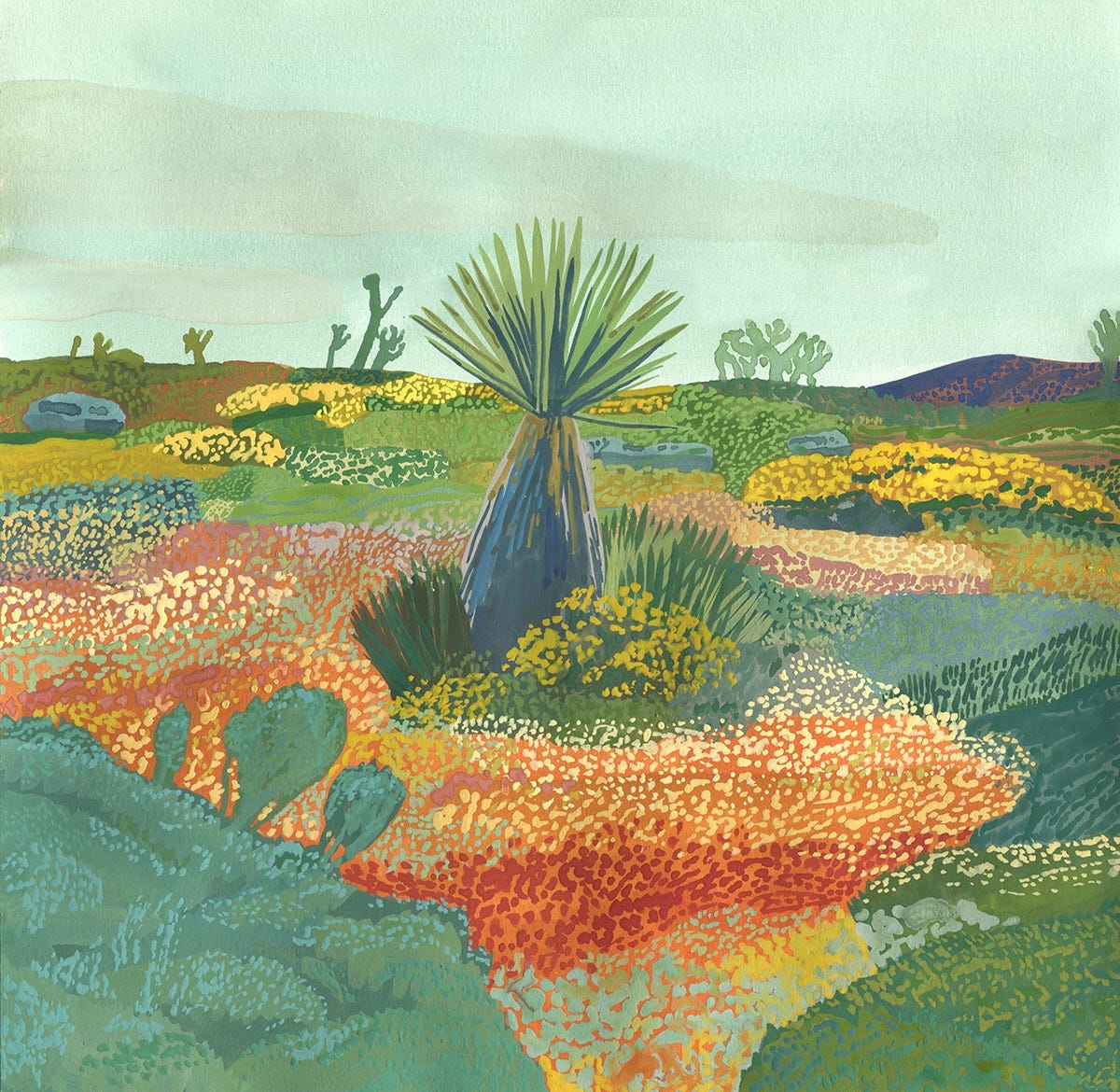
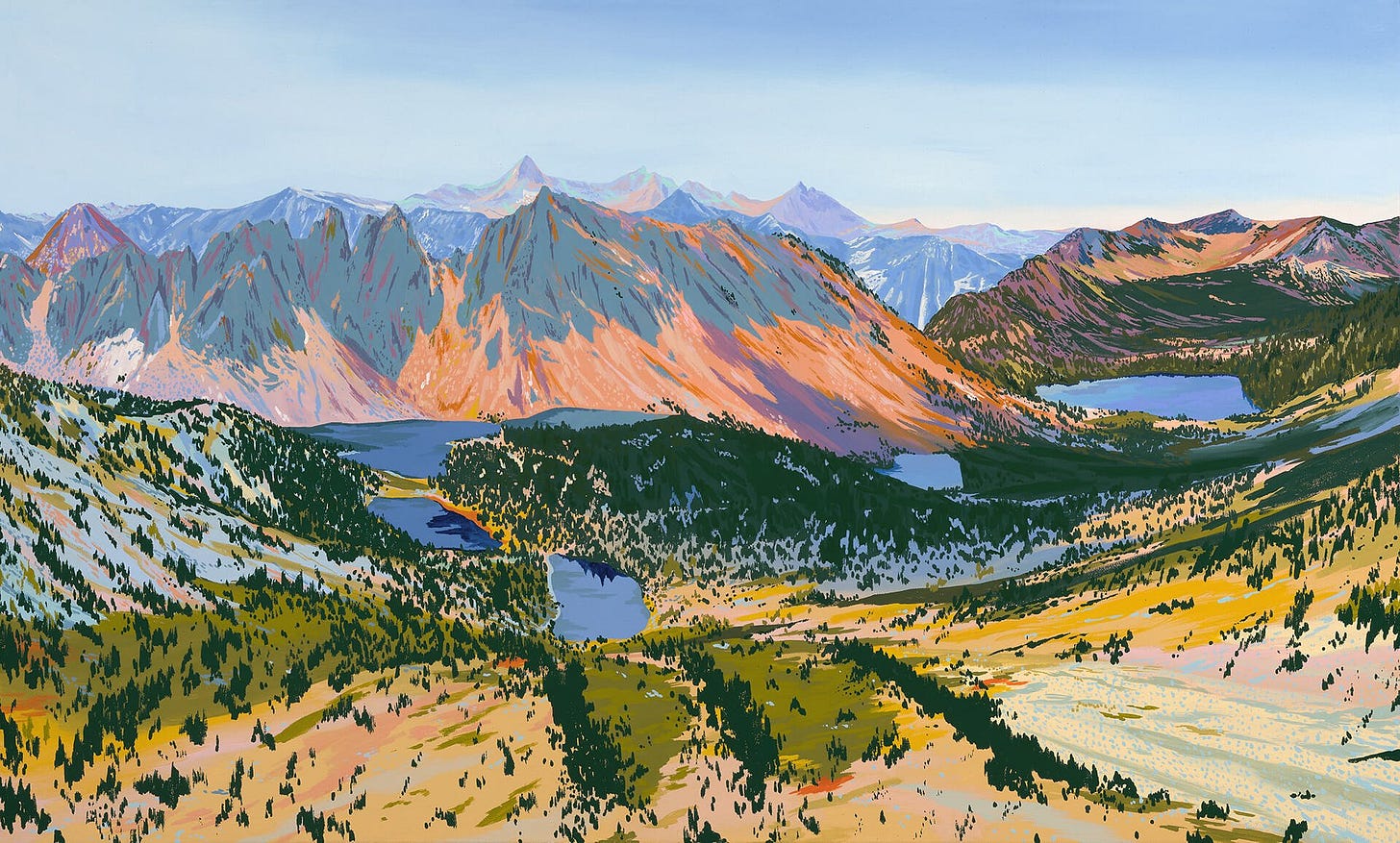
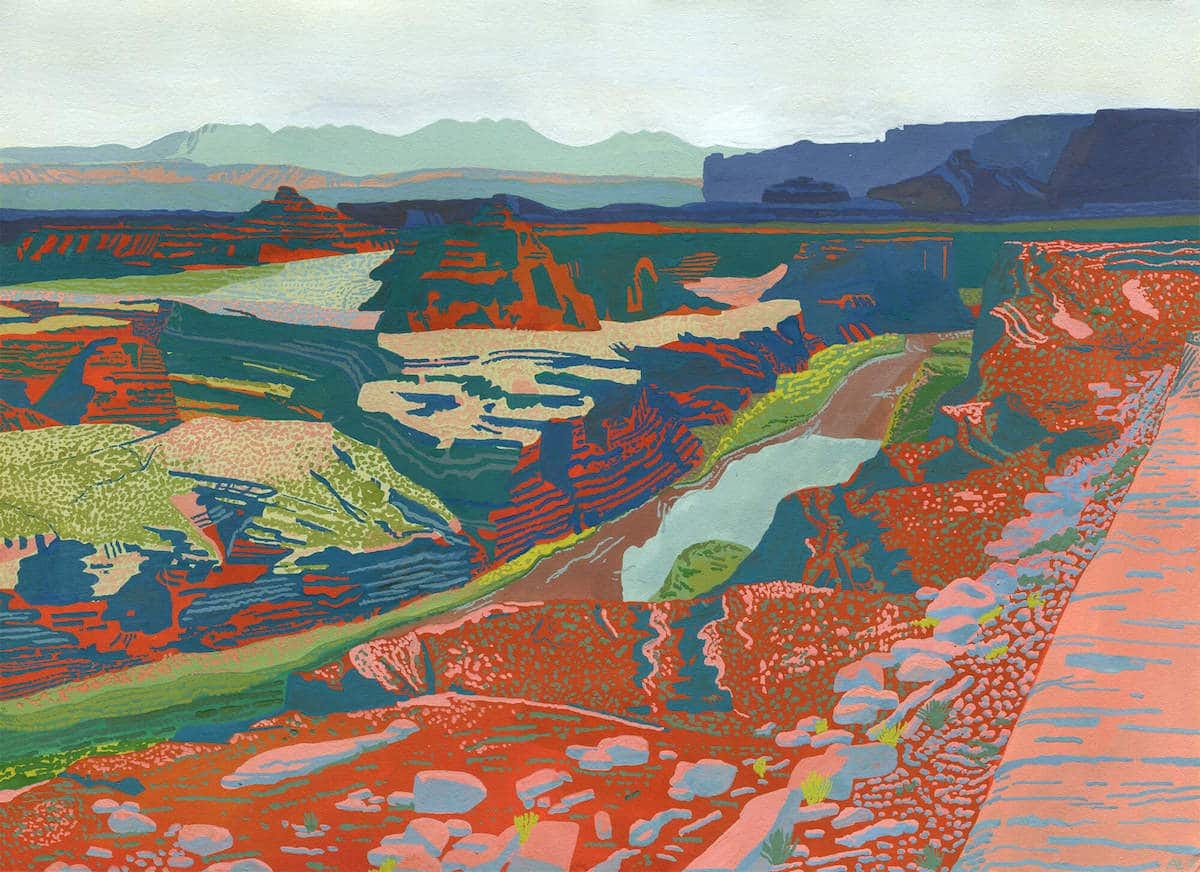


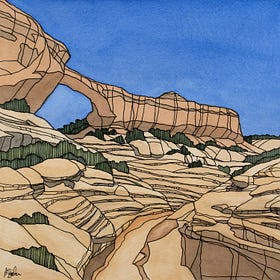



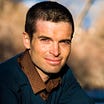
This is so beautiful. Thank you!
“15 million premature deaths each year”
I will accept that at face value. But how many lives are enriched and prolonged due to our use of fossil fuels, fertilizers. extracted resources and so on?
How many are impoverished when we focus obsessively on the downside of human productivity and fecundity?
I love clean air and clean water but we’ll get more of it if we focus on enriching God’s greatest creation, mankind, than by treasuring the earth as our possession. https://www.churchofjesuschrist.org/study/scriptures/bofm/2-ne/9?id=p30&lang=eng#p30